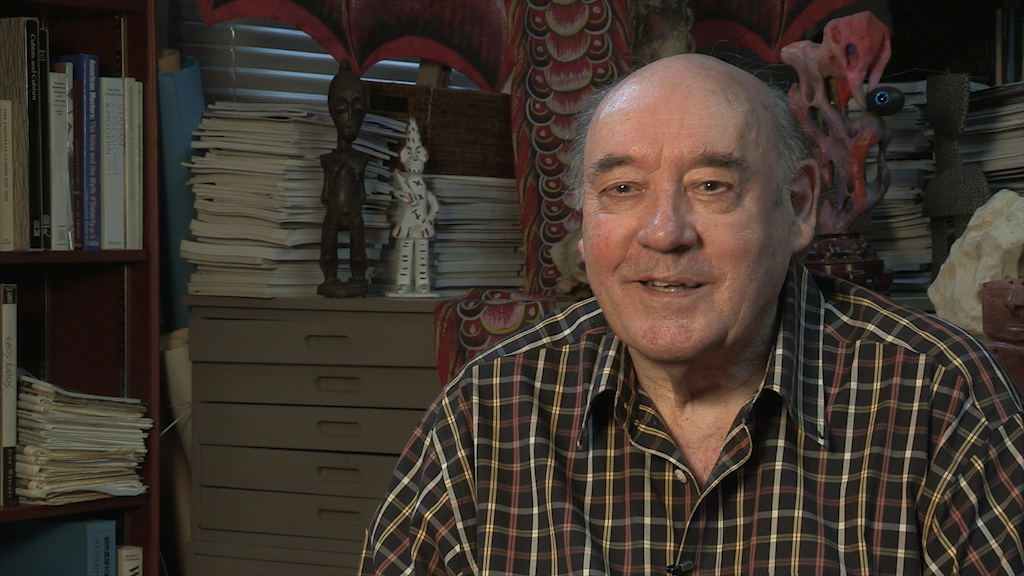One of the aspects of human behaviour that's particularly fascinated me for obvious reasons is human violence. It's still a major problem, and when you read the newspapers or watch the news on television, you get the impression that we are a hideously violent species. Because, of course, television news doesn't say: Mr Smith got up today and had a quiet, peaceful day and didn't hit anybody and went to bed. That's not news. What is news is when somebody commits a murder or war breaks out or there's a riot or an atrocity and then it's news. So we get a very peculiar view of our species through the news channels, through newspapers and television and radio. And what we forget is that of the – what is it now? – 6, 7000 million people on earth, the vast majority of them woke up this morning and had a peaceful day. They didn't hit anybody, they didn't kill anybody, they didn't riot. Yes, there are people rioting, yes, there are people killing and torturing, yes, this is happening, but the vast majority of people do not do this.
And what we tend to forget, because of the way the news focuses its attention on violence, is that we are a remarkably peaceful species. And this is because, in our evolution, we developed two competing patterns of behaviour: competition and cooperation. These two patterns are at war with one another. We like to compete and we like to cooperate. We like to be helpful and we like to be difficult. And there's a nice balance between these two because without a bit of competitiveness, we're not going to drive one another on, and without cooperation, we're not going to survive. Now, people have underestimated the cooperative urge, the biological... I was going to say imperative – the biological imperative that you must cooperate with one another or you will die, because there is no way that our tribal ancestors could've survived without a great deal of cooperation.
Cooperation. This isn't some sort of moral tale; this is survival. You cooperate for selfish reasons, you cooperate because if you don't cooperate as a tribe, you die. You have to help one another. On the hunt, for example, the men had to cooperate with one another actively or they wouldn't make a kill and they would starve. What the leader... there would always be competition, though, between the hunters and there would be a leader and he would be the best of the hunters and he'd be the leader. But, if he didn't have active cooperation from the other hunters, he was done for because if he was brutal towards his... the other hunters and tyrannical, then what would happen is he'd say, right, everybody round here, you know, I'm going down there and they'd say okay, and he'd... they'd let him get killed.
You can't... on a hunt you have to help one another if you're going to kill a large animal. You cannot do it by yourself. And we know from studies of early kills, the way in which they were done where animals were driven over cliffs or into ravines where they could be killed. There are... there's quite good evidence on the cooperative skills that were necessary for successful hunting. So cooperation became a key element for hunters. And again, back at the... at the tribe, cooperation between the women had to happen for successful rearing of the offspring because when a mother gave birth, she needed help and there would be a great deal of mutual aid between the females in the settlement. And so, for both males and females, there was an intense development of cooperation.
And then there was also a development of a bond between the males and the females. And these bonds of attachment between males and females are what we call love. And they were very important to us because, again, it was a matter of sharing, that if you had a tyrannical male – I'm thinking now, let's say, of a baboon that has a harem of females and he's the top monkey in that group and the other males have to sort of keep on the outskirts and he has all the females to himself – until he gets too old and then one of them moves in and takes over. Now if you're a hunter-gatherer society, you can't do that because the males are going off and separating from the females. You... and the males need help to make the kill. So cooperation is essential for survival. It's not a matter of altruism or moralistic altruism. It's nothing that the Church has to teach you. It's in your genes that you are helpful and cooperative. That's the kind of animal you had to be to survive as hunter-gatherers.
And so that cooperation which, in its intense form, becomes love... and also because you will have a powerful love between the males who are hunting together and helping one another to survive and when one of them is injured – and the same amongst the women, when the babies are born and they're helping one another – this helpfulness became, in its strongest form, what we would call love. There was also a sexual love between the males and the females and pair bonding developed because it meant that there was a sharing out of the females so that you would... if you... if you didn't have that, if one male was too tyrannical, you would lose the cooperation within the tribe.





